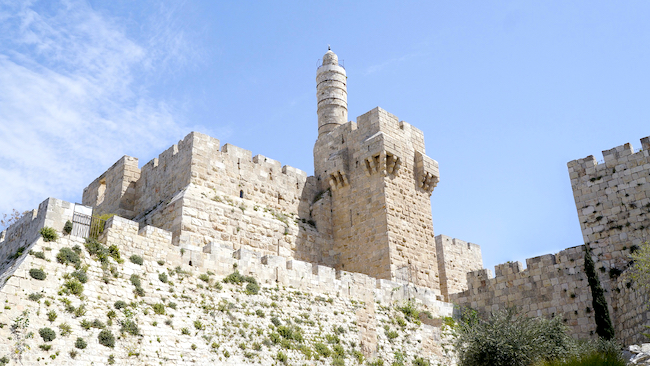
Yirmiyahu 32:6
This week’s haftorah reinforces the notion of our eternal relationship with our homeland, Eretz Yisroel. In the midst of a heavy Babylonian siege against Yerushalayim, the prophet Yirmiyahu was instructed to make a most puzzling transaction. Hashem informed Yirmiyahu that his cousin Chanamel was interested in selling his field and that Yirmiyahu should take full advantage of the opportunity. Although Yirmiyahu realized that the Jewish exile was imminent and that the Babylonians would soon take full possession of Eretz Yisroel he followed Hashem’s direction and arranged for the purchase. Yirmiyahu wrote a legal contract and paid a large sum of money for the land. Yirmiyahu then preserved the document in an earthen vessel to secure its existence until such evidence would be useful.
The prophet then directed his words to Hashem in bewilderment and questioned, “Since the Babylonian war machines are in full gear and the Jewish exile is already on its way, of what purpose is this sale?” Hashem responded, “I am the Master of all; is there anything beyond My capabilities? The Jewish people will return and re-engage themselves in such purchases and the land will be resettled.” The dialogue seems to be somewhat understood; however the purchase remains a mystery. Hashem had sent many prophets to the Jews regarding their eventual return from the Babylonian exile. Why was it necessary to demonstrate their return through this tangible experience? It is certainly fair to assume that Yirmiyahu would not derive any personal benefit from this purchase. After all, he was on the way to a long and hard exile of seventy years without any indication of personally returning to Eretz Yisroel. Why then was he instructed to waste his money in securing what, for him, was a seemingly useless transaction?
In response it can be suggested that this purchase taught the Jewish people a very meaningful lesson. One can easily imagine the feelings of the Jewish people during that era. They were finally confronted with the reality that they would soon be forced to leave their homeland. Although they had enjoyed the privilege of dwelling in the palace of the king for nearly one thousand years this privilege was now drawing to a close. Their minds were now focused on their unfortunate plight and they dreaded severing their ties with Eretz Yisroel. Although this painful thought surely tormented them but the reality was that their association with Eretz Yisroel was slowly beginning its decline.
At that exact moment the prophet Yirmiyahu was instructed to secure the purchase of a plot of land. Through this visible demonstration, the Jews were being told to rise above their inevitable predicament and to realize that their painful exile would only be temporary. They were encouraged not to despair and never to break their ties with their homeland, Eretz Yisroel. To reinforce this point their prophet Yirmiyahu was instructed to demonstrate his total faith in the Jewish people’s return. Yirmiyahu began setting his sights on the future and purchased property in preparation for the return. In Yirmiyahu’s mind this upcoming exile was but a passing phase and he rightfully preoccupied himself in life after the brief Babylonian stay. Yirmiyahu taught the Jews that the Jewish people never really leave Eretz Yisroel and that they are always bound to their homeland. He taught them that they truly belong to Eretz Yisroel and that Eretz Yisroel would always belong to them.
A similar lesson regarding our relationship with Hashem is revealed to us at the end of this week’s parsha. The Torah warns the Jews to adhere to all of Hashem’s mitzvos even after their exile from Eretz Yisroel. The Sforno explains the reason for this general warning which encompasses mitzvos that don’t specifically relate to Eretz Yisroel. He states that the Jews in exile could easily present the argument of rejection. After all, Hashem expelled the Jews from His land, indicative of His lack of interest in the Jewish nation. If so, what binds the Jewish people to the mitzvos, considering that Hashem severed His relationship with His people!? The Torah therefore reminds us that its obligations remain forever and that Hashem is forever concerned about His people. The Sforno notes that even after the Bais Hamikdash was destroyed the Divine Presence remains amongst the Jewish people. This phenomena is felt in our Bais Haknesses, synagogue and Bais Hamidrash, Torah study hall which continue to embody the Divine Presence at all times. (see Sforno’s comment to Vayikra 26:12) We learn from this that Hashem never forsakes His people and remains amongst them always because Hashem will always be our G-d and we will always be His chosen nation.


